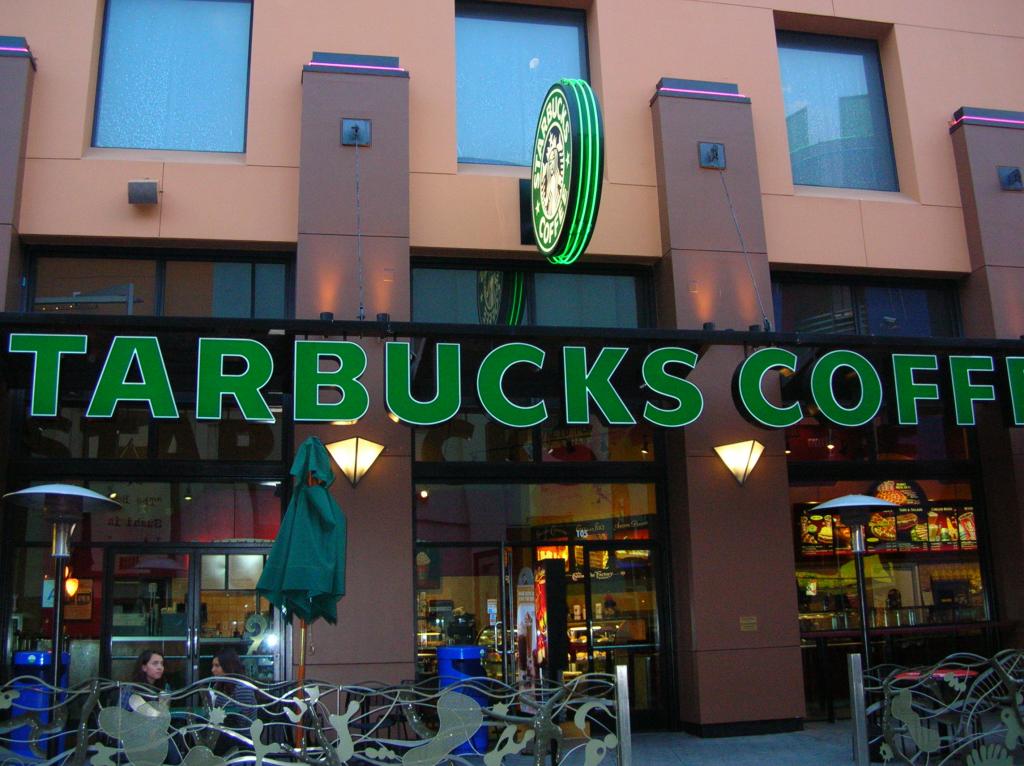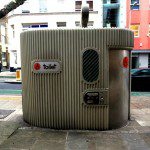
An update on Starbucks: as part of its resolution to the bad publicity in the wake of the arrest of two men at a Philadelphia Starbucks, the company has announced that, henceforth, they “will now allow anyone to use the restroom at Starbucks locations even if they are not paying customers.” To be sure, executive chairman Howard Schultz, when announcing the policy, then said, “we don’t want to become a public bathroom,” but, quite honestly, that is, in effect, what they are doing.
Now, I’ll remind readers again that I am a proponent of the “pay to pee” model, in which governments and private companies provide public restrooms in abundance, for a fee, whether in the form of a turnstile-type entrance at public restrooms or a request for a quarter or two at a restaurant or store’s restroom — in either case funding the cleaning and overall costs of making them available, but reimbursable for customers making purchases.
But the Starbucks approach? Yes, it’s a given that Starbucks locations in the suburbs, or, really, anywhere outside the city center, leave the bathrooms unlocked. There’s no real reason to lock them, since the numbers of noncustomers seeking to use the restrooms are small enough that it’s not worth the effort of managing a “bathroom key.” In principle, even in the city center, if there were plenty of available restrooms, no single restaurant/coffeeshop/donut shop/store would be obliged to deal with a disproportionate number of restroom users — though each of them would still have to deal with the sort of users no one wants — homeless who use restrooms for personal grooming and washing (note: my local public library faces enough of a risk of homeless using the restrooms for these activities that there are signs expressly forbidding it, and that’s in the suburbs), junkies shooting up or overdosing, and the like.
But Starbucks is engaging in something more akin to unilateral disarmament, and seems destined to become de facto public potties and the destination for all manner of city-dwellers and visitors, with the only protection against abuse of its new policy being the reluctance some people may have to ask for the key for a bathroom of a place where they have no intention of purchasing anything.
But could they have make a different decision? It’s hard to second-guess them, once the reports of white customers claiming that they were given the bathroom code without purchasing and without questioning, were reported. Perhaps Starbucks could have gone the other direction and said, “we’ll be sure that only customers are ever given the bathroom code from here on out,” but it likely is the case that if a manager believes that pleading customer saying, “I’m going to make a purchase but I really have to pee first,” is telling the truth, Starbucks wants its employees to have the discretion to believe them.
Yet they are now at risk. They are exposed to the possibility that they’ll have to spend an undesirably-large amount of time cleaning the bathrooms, that they’ll acquire a reputation, among potential paying customers, of having dirty or crowded bathrooms, or, worse, being a place to avoid because of the homeless frequenting the place.
So what would you do? And what should they have done?
Image: https://upload.wikimedia.org/wikipedia/commons/c/c1/Starbucks%2C_Universal_CityWalk_Hollywood.JPG













